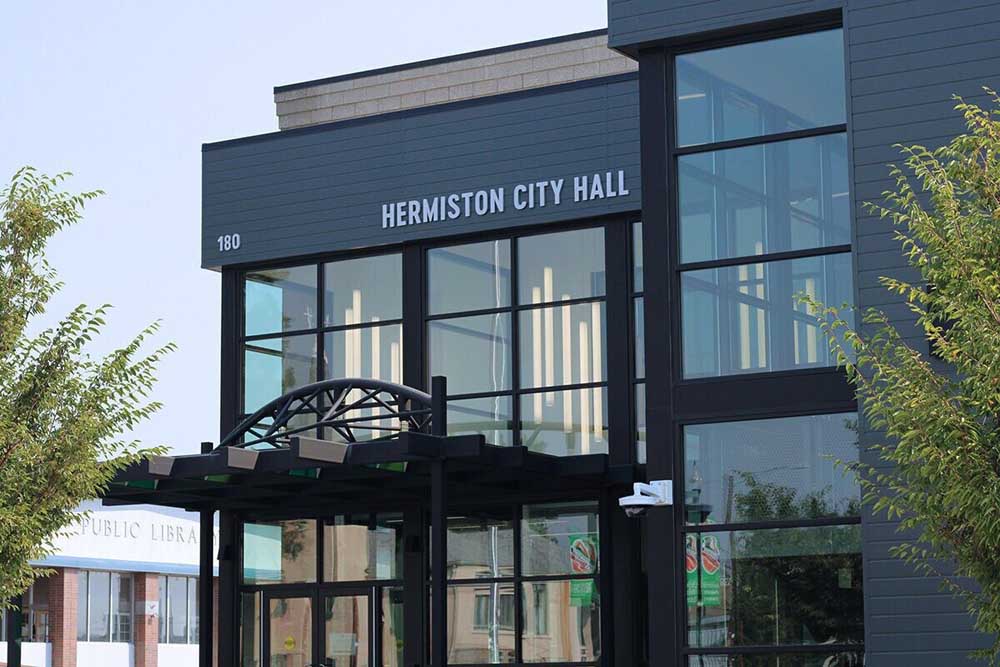Landlords, tenants learn to coexist under each others’ watchful eyes
Published 8:56 pm Saturday, February 14, 2004
When Tammy Page’s close friend returned home from fighting in Iraq last September, she wanted to surprise him with a welcome home message on the window to her apartment. She didn’t know the simple message would generate an eviction notice.
While this scene is uncommon, it points to a very real possibility that renters everywhere need to know their rights – from when a landlord needs to replace a water heater, to when they overstep their authority.
In Page’s case, she used washable paint to write “Welcome home Private 1st Class Michael Hlawek” on her bedroom windows. She washed it all off the next day, but a new message arrived soon after from the landlord: Vacate the premises.
“I didn’t think it was right that I received an eviction notice for writing a patriotic message that I washed off,” said Page, who has lived at Columbia Crest Apartments in Umatilla for three years.
So Page went to Legal Aid, which provides legal services to people with low incomes. She filed a lawsuit against Columbia Crest Apartments, which she later dropped when she was allowed to stay in her apartment. Had Page not taken the aggressive route, she may well have been evicted. Page’s landlord was out of town and unavailable for comment.
While most landlords try hard, a few bad apples point to the need for better-educated tenants.
Many Eastern Oregon residents rent homes and apartments, and some have found themselves the victims of absentee landlords or inattentive building managers. But before landlords take all the heat, it’s only fair to point out that plenty of landlords work hard to provide appropriate services.
“You get these tenants and you bend over backwards to try to help them the best you can and try to give them the benefit of the doubt,” said Tina Renshaw, who works for Hermiston Property Management. “Not all property managers do this, but I try to.”
Renshaw said there are good tenants and bad tenants, good landlords and bad ones.
The best step landlords and property managers can take when a prospective tenant applies for a rental, Renshaw said, is to run credit, civil and criminal background checks on the applicant.
“Landlords need to protect themselves,” Renshaw said. “The biggest thing I’ve found is that if people have a history of not paying their bills, then they won’t pay their rent.”
Dennis Moffit, a property manager for ABC Realty in Pendleton, agrees, adding that both landlords and tenants should take another important precautionary step when a lease begins to avoid a costly lawsuit.
“Walk through the rental and document any damage in the place before moving in,” Moffit said. “Do the same thing when moving out to see if any more damage has accumulated.”
Renshaw said the walk-through should be insisted upon, whether it be by the landlord or tenant.
“If a tenant can’t get a landlord to do a walk-through, then they should do one themselves and write things down, keep a copy and give the original to the landlord,” Renshaw said. “Take pictures.”
Renshaw said a tenant’s – and a landlord’s- best security in a potential lawsuit is paperwork. Keep everything documented and copied for future reference, including the rental contract.
“Judges don’t want to deal with this sort of stuff, so typically, whoever has the best paperwork wins,” Renshaw said. “If the tenant takes the initiative to have this stuff, the judge will probably side with them.”
Renshaw said some tenants are afraid to pursue legal action, but she added that sometimes there’s no alternative.
“When you’re living in a place with a slumlord for your building manager, you most likely can’t afford to live anywhere else,” she said. “Do you think these people can then afford to go to court? No.”
But there is help available.
Arron Guevara is the regional director for Legal Aid in Pendleton, which has assisted numerous tenants on landlord-tenant law issues, as well as a few landlords. There are attorneys available to consult or represent tenants or landlords, as well as pro bono attorneys, who have private practices and offer their services for free to people who qualify.
Guevara recommends several steps for people who believe their rights are being violated, particularly tenants.
“We provide a pretty detailed tenant-landlord pamphlet,” Guevara said. “It’s all in question-and-answer form, so it’s pretty reader-friendly. That would be the route with the least amount of attorney involvement.”
The next step is a consultation with a Legal Aid attorney, who can help clients decide if a lawsuit is the answer to their problems.
Guevara recommends that every landlord and tenant acquire a copy of the tenant-landlord pamphlet, which is available at the Legal Aid office in Pendleton. He also suggested that tenants keep a copy of the rental agreement.
“You’d be surprised at how many tenants don’t get rental agreements,” Guevara said. “And they’re always the ones who end up having problems with landlords.”
Most rental agreement forms, which are available at most office supply stores, go through just about every possibility, such as who is responsible for what in a variety of situations. This agreement can be used as security when a problem with a landlord or tenant arises.
For landlords, there are seminars available several times each year from the Multifamily Housing Council, in which Director Emily Cedarily talks to landlords and property managers about the rules and regulations of overseeing rental units.
Renshaw said it’s important for renters and landlords to get to know their rights so that they can protect themselves from a bad situation.
For example, Page said her landlord sent a notice to all Columbia Crest Apartment tenants informing them they had to acquire renter’s insurance within a 30-day period or face eviction. While renter’s insurance is a good idea, Renshaw said, the insurance is not required by law. It’s up to the renter to get it.
Page said she has a copy of the tenant-landlord pamphlet from Legal Aid, and is trying to educate herself on her rights as a renter. She’s even trying to start a tenant’s union in her apartment complex. She remains courteous with her landlord, only speaking to her when necessary.
“I just try not to associate with her anymore,” Page said. “She’s just taking advantage of a lot of tenants here.”
—
Contact Casey White at (800) 522-0255 (ext. 1-227 after hours) or by e-mail at cwhite@eastoregonian.com.





